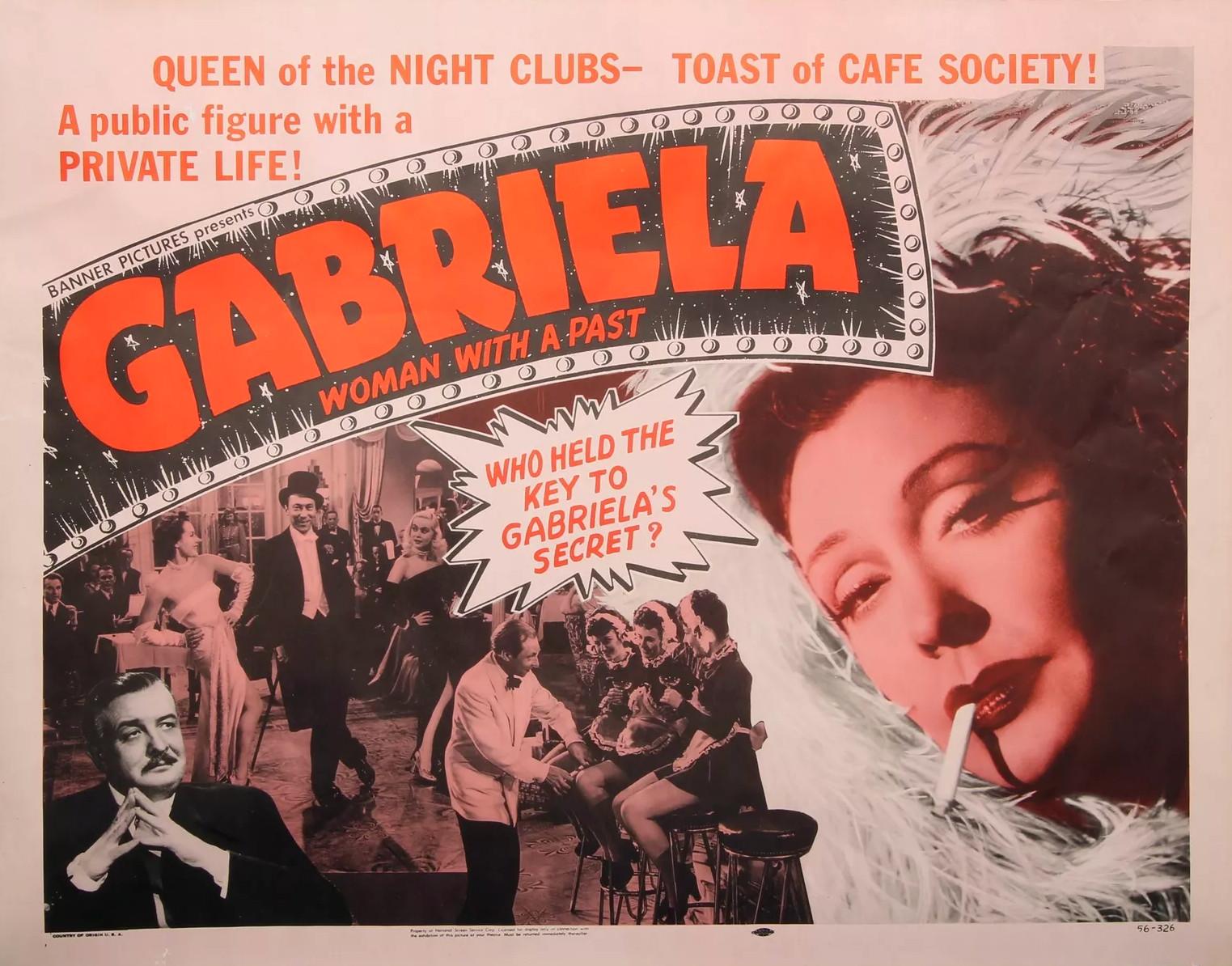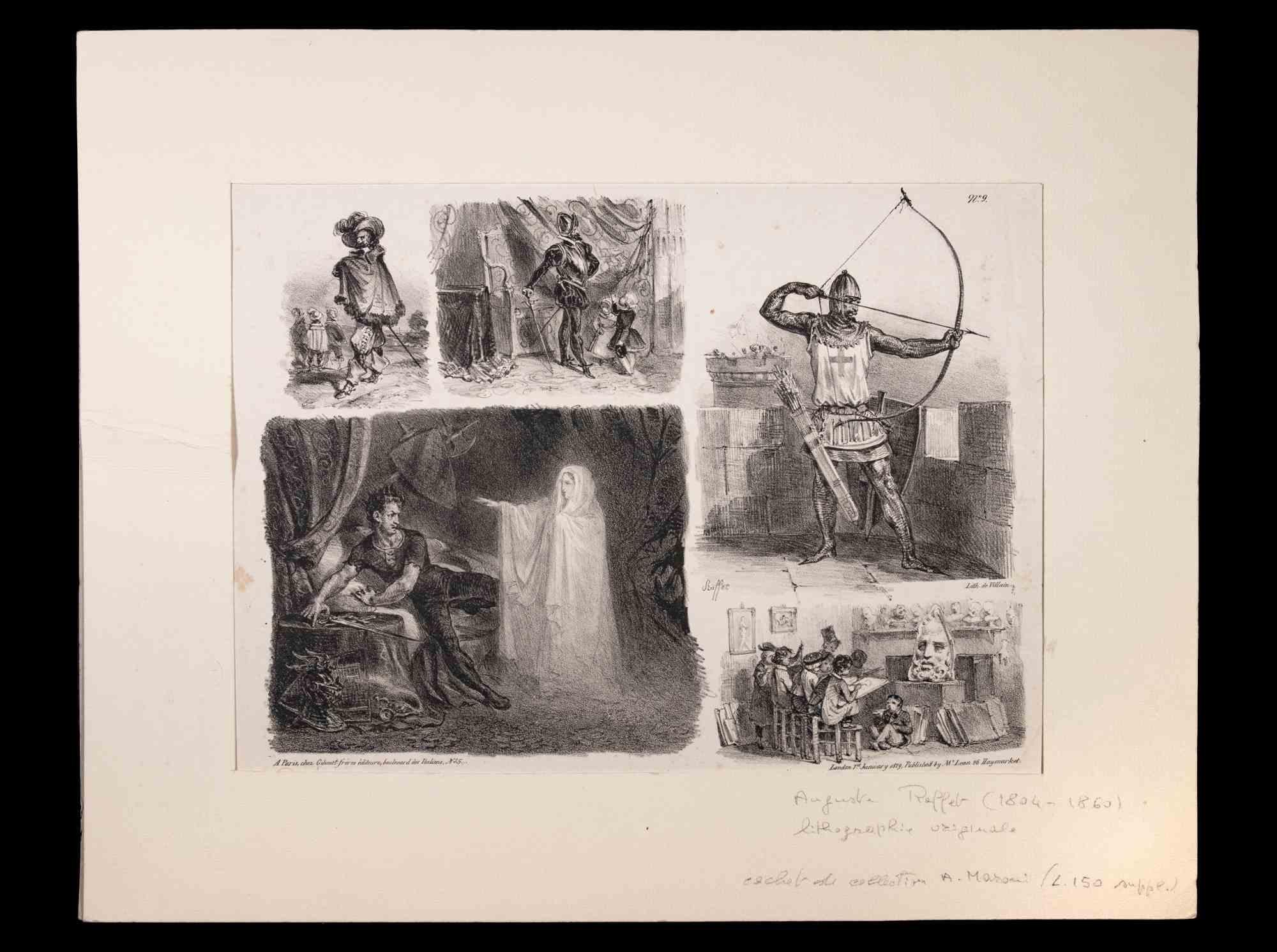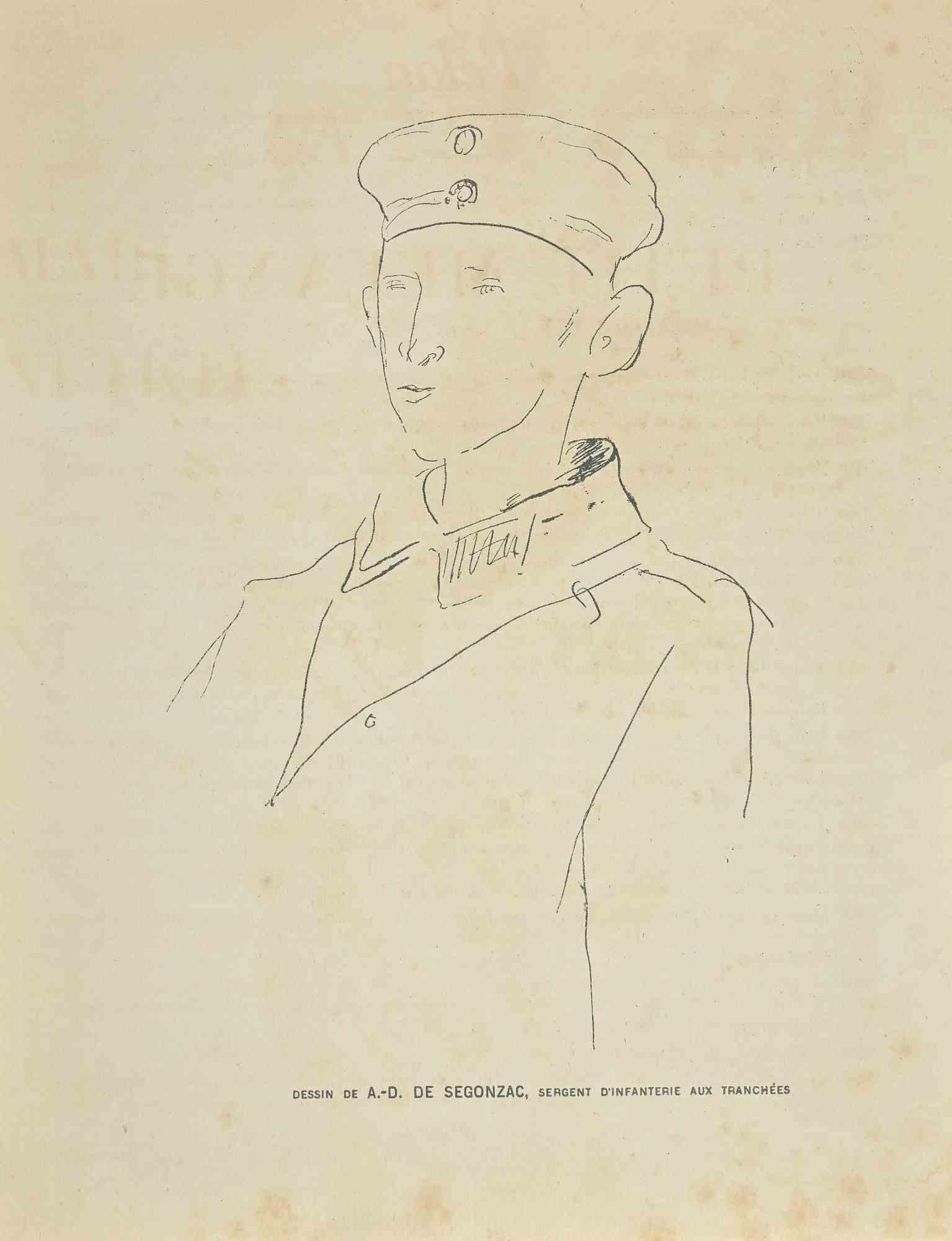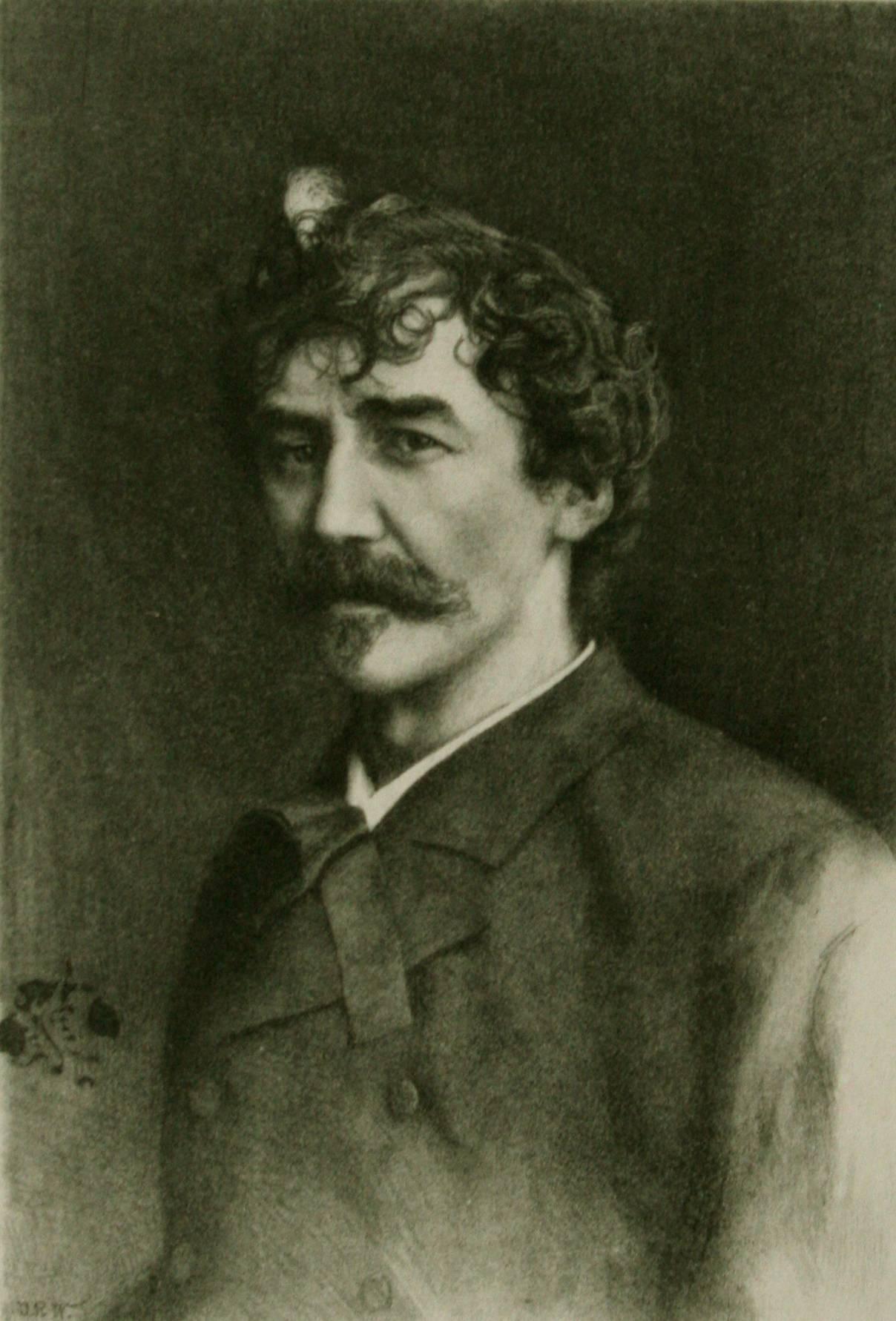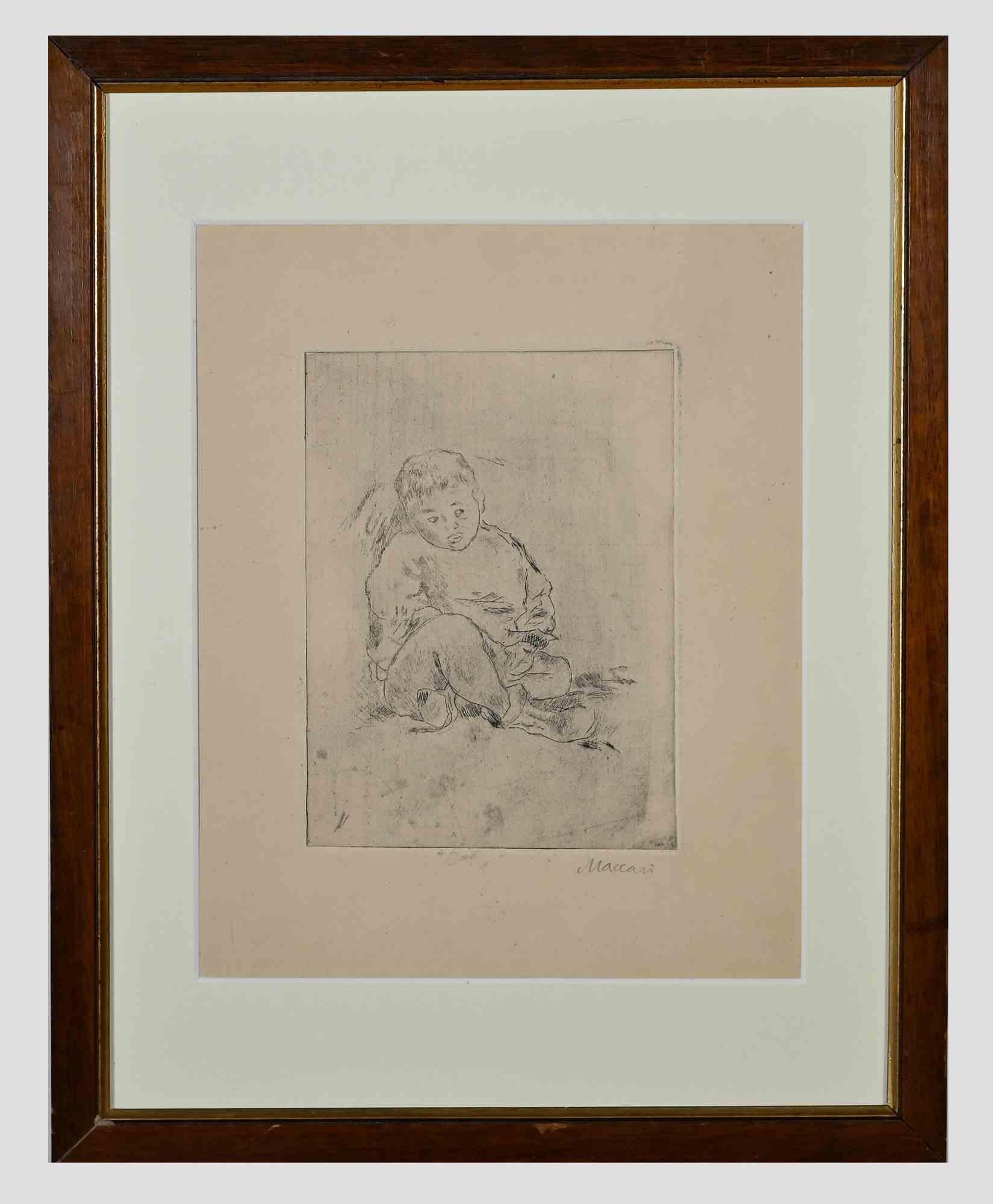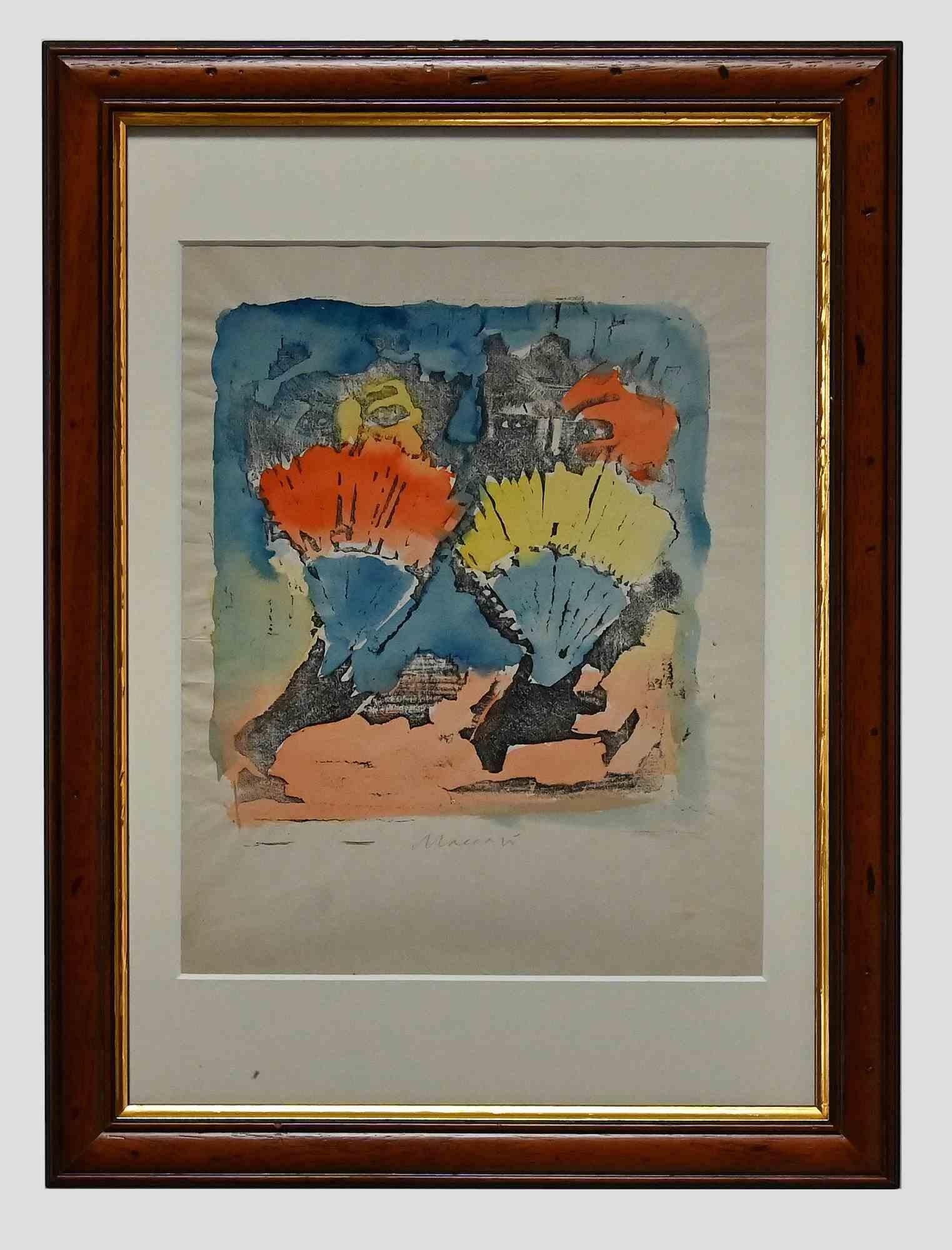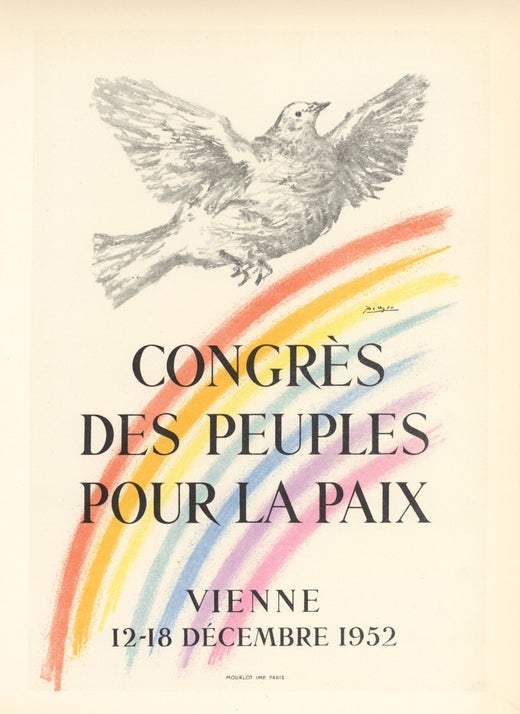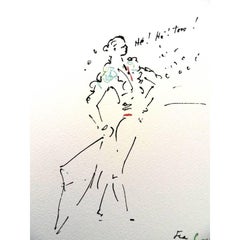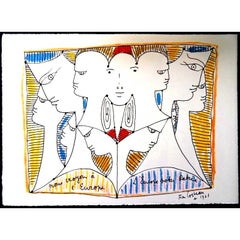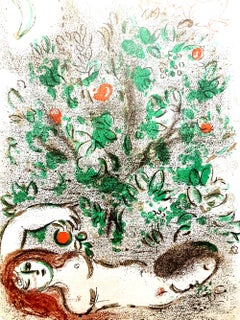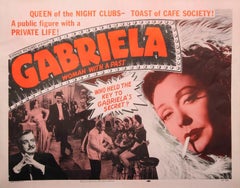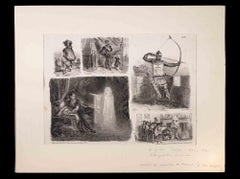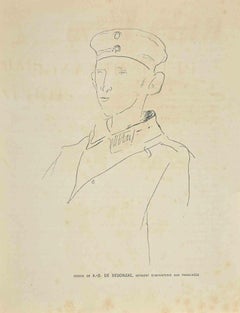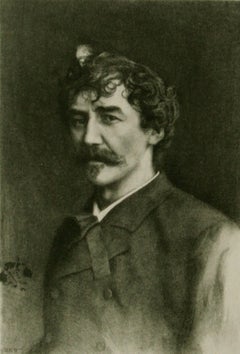Items Similar to The Human Comedy - Lithograph
Want more images or videos?
Request additional images or videos from the seller
1 of 6
(after) Pablo PicassoThe Human Comedy - Lithograph1954
1954
About the Item
After Pablo Picasso
The Human Comedy - Lithograph after an original drawing, as published in the journal "Verve"
Printed signature and date
Dimensions: 32 x 24 cm
This artwork is a lithograph on wove paper
Printed by Mourlot, Paris.
Pablo Picasso
Picasso is not just a man and his work. Picasso is always a legend, indeed almost a myth. In the public view he has long since been the personification of genius in modern art. Picasso is an idol, one of those rare creatures who act as crucibles in which the diverse and often chaotic phenomena of culture are focussed, who seem to body forth the artistic life of their age in one person. The same thing happens in politics, science, sport. And it happens in art.
Early life
Born in Malaga, Spain, in October of 1881, he was the first child born in the family. His father worked as an artist, and was also a professor at the school of fine arts; he also worked as a curator for the museum in Malaga. Pablo Picasso studied under his father for one year, then went to the Academy of Arts for one year, prior to moving to Paris. In 1901 he went to Paris, which he found as the ideal place to practice new styles, and experiment with a variety of art forms. It was during these initial visits, which he began his work in surrealism and cubism style, which he was the founder of, and created many distinct pieces which were influenced by these art forms.
Updates in style
During his stay in Paris, Pablo Picasso was constantly updating his style; he did work from the blue period, the rose period, African influenced style, to cubism, surrealism, and realism. Not only did he master these styles, he was a pioneer in each of these movements, and influenced the styles to follow throughout the 20th century, from the initial works he created. In addition to the styles he introduced to the art world, he also worked through the many different styles which appeared, while working in Paris. Not only did he continually improve his style, and the works he created, he is well known because of the fact that he had the ability to create in any style which was prominent during the time.
Russian ballet
In 1917, Pablo Picasso joined the Russian Ballet, which toured in Rome; during this time he met Olga Khoklova, who was a ballerina; the couple eventually wed in 1918, upon returning to Paris. The couple eventually separated in 1935; Olga came from nobility, and an upper class lifestyle, while Pablo Picasso led a bohemian lifestyle, which conflicted. Although the couple separated, they remained officially married, until Olga's death, in 1954. In addition to works he created of Olga, many of his later pieces also took a centralized focus on his two other love interests, Marie Theresa Walter and Dora Maar. Pablo Picasso remarried Jacqueline Roque in 1961; the couple remained married until his death 12 years later, in 1973.
Work as a pacifist
Pablo Picasso was a pacifist, and large scale paintings he created, showcased this cry for peace, and change during the time. A 1937 piece he created, after the German bombing of Guernica, was one such influential piece of the time. Not only did this become his most famous piece of art work, but the piece which showed the brutality of war, and death, also made him a prominent political figure of the time. To sell his work, and the message he believed in, art, politics, and eccentricity, were among his main selling points.
Conflicting with social views
Many things Pablo Picasso did during the 1950s, conflicted with the general public. Viciousness towards his children, exaggerated virility towards women, and joining the Communist party, were some of the many scandals which he was involved in during his lifetime. Although most of the things he did were viewed negatively by a minority of the general public, admirers of Pablo Picasso turned a blind eye, and still accepted him as a prominent figure in their society. Following the end of WWII, Pablo Picasso turned back towards his classic style of work, and he created the "Dove of Peace." Even though he became a member of the Communist party, and supported Stalin and his political views and rule, Pablo Picasso could do no wrong. In the eyes of his admirers and supporters, he was still a prominent figure, and one which they would follow, regardless of what wrongs he did. He was not only an influence because of the works he created, but he was also an influential figure in the political realm.
Influence outside of art
Although Pablo Picasso is mainly known for his influence to the art world, he was an extremely prominent figure during his time, and to the 20th century in general. He spread his influences to the art world, but also to many aspects of the cultural realm of life as well. He played several roles in film, where he always portrayed himself; he also followed a bohemian lifestyle, and seemed to take liberties as he chose, even during the later stages of his life. He even died in style, while hosting a dinner party in his home.
Collection of work
Pablo Picasso is recognized as the world's most prolific painter. His career spanned over a 78 year period, in which he created: 13,500 paintings, 100,000 prints and engravings, and 34,000 illustrations which were used in books. He also produced 300 sculptures and ceramic pieces during this expansive career. It is also estimated that over 350 pieces which he created during his career, have been stolen; this is a figure that is far higher than any other artist throughout history.
Sale of his works
Pablo Picasso has also sold more pieces, and his works have brought in higher profit margins, than any other artist of his time. His pieces rank among the most expensive art works to be created; with a price tag of $104 million, Garson a la Pipe, was sold in 2004.
Although he had a conflicting lifestyle, Pablo Picasso was admired by many, and was one of the most influential figures of his time. Not only during his life, but also after his death, he is still one of the most well known artists, and political figures, of his time. With thousands of pieces to his name, and art works which have been seen by millions, around the world, he has been a great influence to society, he has influenced the art world, and he introduced many new styles of art, which helped shape modern art, and modern styles artists follow today.
- Creator:(after) Pablo Picasso (1881 - 1973, Spanish)
- Creation Year:1954
- Dimensions:Height: 12.6 in (32 cm)Width: 9.45 in (24 cm)Depth: 0.04 in (1 mm)
- Medium:
- Movement & Style:
- Period:
- Condition:
- Gallery Location:Collonge Bellerive, Geneve, CH
- Reference Number:1stDibs: LU16122170943
(after) Pablo Picasso
Pablo Picasso (1881 – 1973) was a Spanish painter, sculptor, printmaker, ceramicist, stage designer, poet and playwright who is regarded as one of the most influential artists of the 20th century. He is known for co-founding the Cubist movement, the invention of constructed sculpture, the co-invention of collage, and for the wide variety of styles that he helped develop and explore. Exceptionally prolific throughout the course of his long life, Picasso achieved universal renown and immense fortune for his revolutionary artistic accomplishments, and became one of the best-known figures in 20th-century art. The total number of artworks he produced has been estimated at around 50,000.
About the Seller
4.9
Platinum Seller
Premium sellers with a 4.7+ rating and 24-hour response times
Established in 2015
1stDibs seller since 2015
952 sales on 1stDibs
Typical response time: <1 hour
- ShippingRetrieving quote...Shipping from: Collonge Bellerive, Geneve, Switzerland
- Return Policy
Authenticity Guarantee
In the unlikely event there’s an issue with an item’s authenticity, contact us within 1 year for a full refund. DetailsMoney-Back Guarantee
If your item is not as described, is damaged in transit, or does not arrive, contact us within 7 days for a full refund. Details24-Hour Cancellation
You have a 24-hour grace period in which to reconsider your purchase, with no questions asked.Vetted Professional Sellers
Our world-class sellers must adhere to strict standards for service and quality, maintaining the integrity of our listings.Price-Match Guarantee
If you find that a seller listed the same item for a lower price elsewhere, we’ll match it.Trusted Global Delivery
Our best-in-class carrier network provides specialized shipping options worldwide, including custom delivery.More From This Seller
View AllJean Cocteau - He ! He! Toro - Original Lithograph
By Jean Cocteau
Located in Collonge Bellerive, Geneve, CH
Original Lithograph by Jean Cocteau
Title: He ! He! Toro
1961
Dimensions: 38 x 28 cm
Lithograph made for the portfolio "Gitans et Corridas" published by Société de Diffusion Artistiq...
Category
1960s Modern Portrait Prints
Materials
Lithograph
Pablo Picasso - Painter and His Model - Original Lithograph
By Pablo Picasso
Located in Collonge Bellerive, Geneve, CH
Pablo Picasso - Original Lithograph
Title: Painter and his Model
Edition of 180
From the illustrated book "Regards sur Paris" (Paris: André Sauret, 1962)
Pulled from the folio number...
Category
1960s Modern Portrait Prints
Materials
Lithograph
Jean Cocteau - Europe's Diversity - Original Lithograph
By Jean Cocteau
Located in Collonge Bellerive, Geneve, CH
Original Lithograph by Jean Cocteau
Title: Europe's Diversity
Signed in the plate
Dimensions: 33 x 46 cm
Edition: 200
Luxury print edition from the portfolio of Sciaky
1961
Jean Coc...
Category
1960s Modern Portrait Prints
Materials
Lithograph
Marc Chagall - Paradise - Original Lithograph
By Marc Chagall
Located in Collonge Bellerive, Geneve, CH
Marc Chagall, Original Lithograh depicting an instant of the Bible.
Technique: Original lithograph in colours
On the reverse: another black and white original lithograph
Year: 1960...
Category
1960s Modern Figurative Prints
Materials
Lithograph
Bernard Buffet - Flowers - Lithograph
By Bernard Buffet
Located in Collonge Bellerive, Geneve, CH
(after) Bernard Buffet
Title: Flowers
Signed in the plate
Dimensions: 38 x 28 cm
from the edition of 250 as issued in Warnod, Andre, "Les Peintres mes amis" (Paris: Les Heures Claire...
Category
1960s Modern Portrait Prints
Materials
Lithograph
Henri Matisse (After) - Lithograph - Flowers
By (after) Henri Matisse
Located in Collonge Bellerive, Geneve, CH
after Henri MATISSE (1869-1954)
Lithograph
Signed in the plate
Vélin Paper
Dimensions: 32 x 24 cm (12 x 9")
This lithograph is one of a rare edition made during the Second World War ...
Category
1940s Modern Figurative Prints
Materials
Lithograph
You May Also Like
GABRIELA Woman with a past - Queen of the Night Clubs - Toast of Cafe Society!
Located in Kansas City, MO
Zarah Leander (after)
GABRIELA Woman with a past - Queen of the Night Clubs - Toast of Cafe Society!
Offset Lithograph
1950
22.04 x 27.55 inches (56 x 70 cm)
Unsigned as issued
COA p...
Category
1950s Modern Figurative Prints
Materials
Lithograph, Offset
$333 Sale Price
24% Off
The Military Portait - Original Lithographs by Denis Auguste Marie Raffet- 1829
By Denis Auguste Marie Raffet
Located in Roma, IT
The Military Portait - The Appearance of Our Lady- The Classroom is an original Lithograph realized by Denis Auguste Marie Raffet.
Signed on the center and numbered (9). Edition by...
Category
1820s Modern Figurative Prints
Materials
Lithograph
Sergeant Infantry - Lithograph by A. Dunoyer de Segonzac - Early 20th Century
By André Dunoyer de Segonzac
Located in Roma, IT
Sergeant Infantry Trenches is a Vintage Offset and Lithograph print realized by Dunoyer de Segonzac.
The artwork is in good condition on a yellowed paper.
Stamp signed and Titled on the lower margin.
André Dunoyer de Segonzac (7 July 1884 – 17 September 1974) was a French painter and graphic artist. The gossamer quality of his etchings stood in contrast to the thickly painted surfaces and generally somber color of his oil paintings, which reflected his admiration for Courbet and Cézanne. His subjects include landscapes, still lifes, and nudes. He influenced other artists like Samuel Peploe.
Category
Early 20th Century Modern Portrait Prints
Materials
Lithograph
J.A.M. Whistler with the White Lock.
By Thomas Robert Way
Located in Storrs, CT
J.A.M. Whistler with the White Lock. c. 1895. Lithograph. Gallatin 131. 8 1/8 x 5 1/2 (sheet 10 X 6 3/4). A tonal impression printed on fine wove paper. Signed in pencil.
Category
19th Century Modern Portrait Prints
Materials
Lithograph
Child - Lithograph by Mino Maccari - Mid-20th Century
By Mino Maccari
Located in Roma, IT
Child is an original artwork realized in the half of 20th by Mino Maccari.
Black and white etching.
Hand signed by the artist on the lower right margin.
Includes wooden frame.
Mi...
Category
Mid-20th Century Modern Portrait Prints
Materials
Paper, Lithograph
Magic Creatures - Lithograph by Mino Maccari - Mid-20th Century
By Mino Maccari
Located in Roma, IT
Magic creatures is an original artwork realized in the half of 20th century by Mino Maccari.
Hand watercolored lithograph.
Hand signed on the lower right center.
Includes wooden f...
Category
Mid-20th Century Modern Portrait Prints
Materials
Lithograph, Paper
